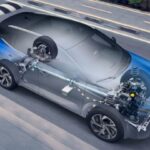In recent years, the automotive industry has experienced a significant shift towards more environmentally friendly transportation options. With concerns over climate change and depleting fossil fuels, consumers are increasingly considering alternatives to traditional gasoline-powered vehicles. Two prominent contenders in this green revolution are hybrid and complete electric cars. While both aim to reduce emissions and dependency on fossil fuels, they have distinct features and benefits. This article will help you understand the advantages and drawbacks of each option, helping potential buyers make an informed decision on whether to opt for a hybrid or an all-electric car.
However, the debate does not have any certain end because both of the segments are having their own separate qualities depending on the different road scenarios. While, some prefer Hybrid cars on the other hand some people support the all-electric, and this is the reason why the debate seems to be endless. Well, when it comes to talking about a short definition of Hybrid cars then, this type of car uses more than one means of energy, combining a petrol or diesel engine with an electric motor, and the two systems work with each other to move the vehicle, and to read the rest of information read below.
Hybrid Cars: A Balanced Approach
Hybrid vehicles introduced more than two decades ago, combine an internal combustion engine with an electric motor and battery. This dual powertrain system offers several advantages that appeal to a broad range of consumers. One primary benefit of hybrid cars is their ability to utilize both electric and gasoline power, offering superior fuel efficiency. The electric motor assists the gasoline engine during acceleration and low-speed driving, reducing fuel consumption and emissions in city traffic conditions.
Additionally, hybrids employ regenerative braking, which converts kinetic energy into electric energy during deceleration, charging the battery and enhancing overall efficiency. This technology improves fuel economy and extends the driving range, making hybrids a practical choice for those concerned about range anxiety, a common issue faced by electric car owners.
Another crucial advantage of hybrids is their widespread availability and affordability compared to electric cars. With a well-established infrastructure for gasoline refueling, consumers do not need to worry about charging stations, making hybrids a more accessible option for those living in areas with limited charging infrastructure.
Despite these benefits, hybrid cars still rely partially on gasoline, which means they produce some emissions and are not entirely emissions-free. The effectiveness of their fuel efficiency heavily depends on the driving habits of the owner. Frequent highway driving may not exploit the full potential of the electric motor, resulting in lower overall efficiency.
Complete Electric Cars: Zero-Emission Pioneers
In contrast to hybrids, completely electric cars, also known as battery electric vehicles (BEVs), operate solely on electric power. They boast zero tailpipe emissions, making them an attractive choice for environmentally conscious consumers. BEVs are powered by large lithium-ion batteries that supply electricity to an electric motor, propelling the vehicle with zero direct emissions. This feature significantly reduces a driver’s carbon footprint and contributes to improved air quality, especially in urban areas where pollution is a major concern.
The advancement of battery technology has addressed the limitations of early electric vehicles, primarily related to driving range and charging time. Modern BEVs can cover several hundred miles on a single charge, and rapid charging stations have become more prevalent, significantly reducing the time required to replenish the battery.
Moreover, owning an electric car often brings various financial incentives, such as tax credits, reduced registration fees, and lower operating costs. Maintenance expenses for electric cars are typically lower than their gasoline counterparts since they have fewer moving parts and require less frequent servicing.
However, despite the improvements in battery technology, range anxiety remains a concern for some potential buyers. The fear of running out of charge and the limited availability of charging infrastructure in certain areas may deter potential electric car buyers. Additionally, the initial purchase cost of electric cars can be higher than that of hybrids, although the difference has been narrowing over time.
Which is Better and Worth Buying?
The answer to whether a hybrid or a completely electric car is better and worth buying depends on various factors, including the buyer’s driving habits, budget, environmental concerns, and charging infrastructure in their region.
Hybrid cars are an excellent choice for those seeking an intermediate step towards more sustainable transportation without completely compromising the convenience of traditional gasoline-powered vehicles. They offer better fuel efficiency, a longer driving range, and are generally more affordable, making them an attractive option for individuals living in areas with limited charging facilities.
On the other hand, completely electric cars are the best option for environmentally conscious consumers who prioritize reducing their carbon footprint and want to contribute to a greener future. As charging infrastructure continues to expand, range anxiety becomes less of a concern, making electric vehicles a viable choice for urban and suburban dwellers. Additionally, with governments and authorities promoting the adoption of electric vehicles through incentives, their financial benefits are likely to outweigh the initial higher costs over time.
Hybrid VS All-Electric Which Is Better?
In the debate between hybrid and completely electric cars, there is no one-size-fits-all answer. Both options offer unique advantages and cater to different consumer needs. Hybrid cars are a practical choice for those who seek better fuel efficiency and a wider driving range without sacrificing the convenience of traditional refueling stations. On the other hand, complete electric cars are ideal for environmentally conscious individuals who prioritize zero emissions, low operating costs, and the latest technological advancements.
Ultimately, the decision between a hybrid and a completely electric car rests on individual preferences, driving patterns, and the availability of charging infrastructure. As technology continues to evolve and the world moves towards a greener future, both hybrid and electric vehicles will play a vital role in shaping the automotive industry.






GIPHY App Key not set. Please check settings